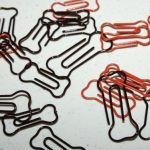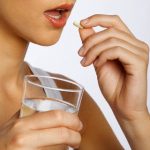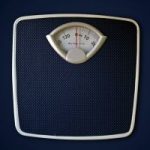General

Although you may have much to be thankful for, holiday celebrations can mean increased levels of anxiety and stress if you are struggling with an eating disorder. With a bit of planning, you can reduce your discomfort and make the celebration more enjoyable. Here are a few tips to help you have the best possible …
Read More

More than half of young women with anorexia develop osteoporosis, according to a study published in the Cleveland Clinic Journal of Medicine. Since bone loss doesn’t necessarily cause any symptoms, it’s called a “silent” disease – and it can cause complications if it’s not addressed through dietary and lifestyle interventions. How anorexia causes bone loss …
Read More

Developing accurate diagnostic criteria for eating disorders has been an evolutionary process for medical professionals, as conditions like anorexia and bulimia often have a range of symptoms that differ in severity and manifestation from person to person. Recent changes to the Diagnostic and Statistical Manual of Mental Disorders (DSM) helped further clarify diagnostic criteria for …
Read More

People purchase tons of vitamins every year and they are supposed to do things like strengthen your mind, make your bones healthier and boost your immune system. You take vitamins to make sure you are as healthy as possible. However, with all the conflicting information out there, you may want to ask yourself if they …
Read More

While diuretics can act as temporary eliminators of “water weight” from the body, they are not effective tools for weight loss. In the long run, diuretics can be dangerous and are not a weight loss solution recommended by physicians. What Are Diuretics? Diuretics, or “water pills,” encourage urination by increasing the flow of urine from …
Read More

The definition of obsessive-compulsive disorder (ODC) has recently changed within the field of psychiatry. In the new, fifth version of the Diagnostic and Statistical Manual of Mental Disorders (DSM), or DSM-5, published by the American Psychiatric Association, the chapter on anxiety disorders no longer includes OCD. Rather, the DSM-5 has created a new chapter specifically …
Read More

Merida, the Scottish archeress from Disney’s 2012 feature film Brave, is not much like her princess predecessors. She’s strong, self-sufficient, unphased by societal norms or royal decrees. She breaks a witch’s spell and saves her mother without the help of a prince. Frankly, she’s the kind of princess and role model we’ve been waiting for …
Read More

Hypothyroidism Hypothyroidism is a condition that describes underactive thyroid function. This condition is common among women and can make a sufferer feel exhausted, stressed, intolerant to cold or make it difficult to lose weight. Because the thyroid gland is responsible for metabolism, a low-functioning thyroid can lead to a slow metabolism, therefore making weight loss …
Read More

Alternative medicine treatments have both negative and positive consequences when used in combination with treatment for eating disorders. It’s important to note that no alternative or complementary therapy has been found to work conclusively in treating eating disorders. Positive Effects Some research has suggested that alternative medicine, while not able to treat eating disorders entirely, …
Read More

Rumination disorder is a condition that is charactertized by the regurgitation of food and subsequent chewing and swallowing of the same food. The condition usually occurs in infants, however it can sometimes affect children, teens and adults. Causes The cause of rumination disorder is unknown, but a lack of stimulation or physical touch, neglect or …
Read More
 Eating Disorder Self Test. Take the EAT-26 self test to see if you might have eating disorder symptoms that might require professional evaluation. All answers are confidential.
Eating Disorder Self Test. Take the EAT-26 self test to see if you might have eating disorder symptoms that might require professional evaluation. All answers are confidential.
Find a Treatment Facility Near You
Click on a state below to find eating disorder treatment options that could be right for you.










 Eating Disorder Self Test. Take the EAT-26 self test to see if you might have eating disorder symptoms that might require professional evaluation. All answers are confidential.
Eating Disorder Self Test. Take the EAT-26 self test to see if you might have eating disorder symptoms that might require professional evaluation. All answers are confidential.